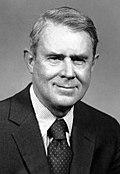| General Counsel of the Department of Defense | |
|---|---|
 Seal of the Office of General Counsel | |
 Flag of the general counsel [1] | |
| Department of Defense Office of the Secretary | |
| Style | The Honorable |
| Reports to | Secretary of Defense Deputy Secretary of Defense |
| Seat | The Pentagon, Arlington County, Virginia, United States |
| Appointer | The president with Senate advice and consent |
| Term length | No fixed term |
| Constituting instrument | 10 U.S.C. § 140 |
| Precursor | Assistant Secretary of Defense for Legal and Legislative Affairs |
| Formation | 1953 |
| First holder | H. Struve Hensel |
| Deputy | Principal Deputy General Counsel |
| Salary | Executive Schedule, level IV [2] |
| Website | ogc.osd.mil |
The general counsel of the Department of Defense is the chief legal officer of the Department of Defense (DoD), advising both the secretary and deputy secretary on all legal matters and services, and providing legal advice to Office of the Secretary of Defense organizations and, as appropriate, other DOD components.
Contents
The general counsel develops the department's legislative program and coordinates DoD positions on legislation and executive orders; coordinates the appeals process for denied FOIA requests; oversees the performance and standards of DoD attorneys; establishes policy on general legal issues and determines the DoD position on specific legal problems; maintains repository for all international agreements coordinated, negotiated, or concluded by DoD personnel; and is "dual-hatted" as director of the Defense Legal Services Agency.
This position was established by Reorganization Plan No. 6 of 1953 and by Defense Directive 5145.1, signed 24 August 1953. The position derived its responsibilities from one of the original three special assistants to the secretary (established in 1947) and the assistant secretary of defense (legal and legislative affairs) (established in 1949). [3]
The Standards of Conduct Office (SOCO) is an element of the Defense Legal Services Agency within the Office of General Counsel. [4]































